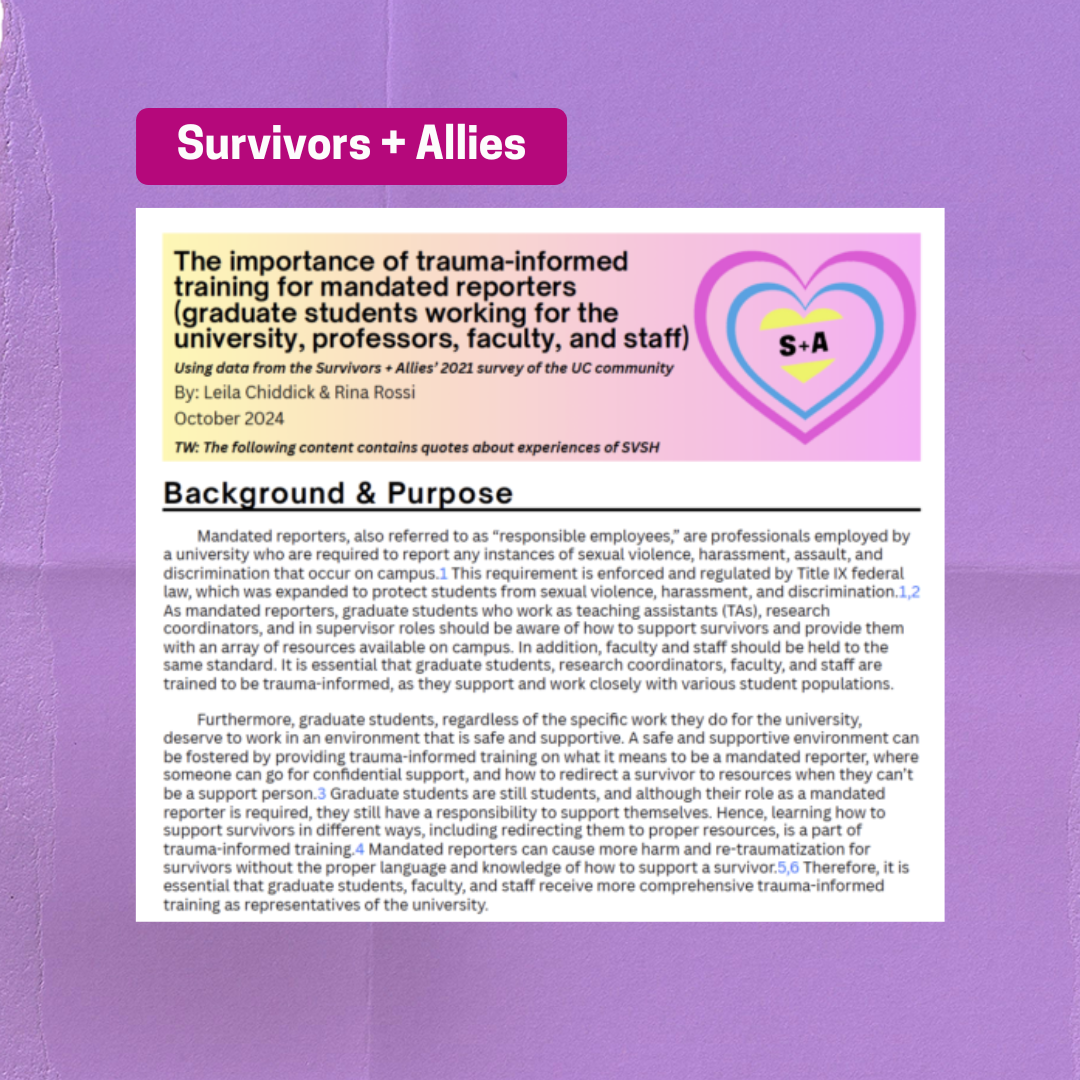Survivors + Allies Launches New Research Briefs from 2021 Study

By: Kalani Phillips, Survivors + Allies Member
Survivors + Allies (S+A), a cross-campus student organization dedicated to advocating for and with survivors of sexual violence and sexual harassment (SVSH) on college campuses, is using data from their 2021 research study of survivors across all 10 UC campuses to produce a series of short research briefs on important topics they identified in their data. These briefs are intended to highlight unique needs of certain student groups impacted by SVSH, such as International students or LGBTQIA+ students, or the importance of certain practices, such as trauma-informed training.
In addition to being focused on specific topics and populations, the briefs are meant to be shorter and more accessible for advocates, policymakers, researchers, and organizations than their previously launched comprehensive report. The briefs were produced in collaboration with Survivors + Allies members and will continue to be released as members finish them.
A few briefs have been launched already, including one titled, “The Importance of Trauma-Informed Training for Mandated Reporters.” Mandated reporters, also referred to as “responsible employees,” are required to report instances of SVSH that occur on campus. While this requirement is enforced and regulated by Title IX federal law, many graduate students that work as teaching assistants (TAs), research coordinators, and in supervisor roles are not trained on how to support survivors after a potentially traumatic incident, or what resources to provide to them. This issue also extends to faculty and staff on UC campuses. Given that mandated reporters can cause more harm than good by potentially re-traumatizing a survivor with a lack of validation and support, it is essential that graduate students, faculty, and staff that are mandated reporters receive comprehensive trauma-informed training on how to support survivors from various student populations. Read more about this issue and S+A’s findings here.
Additionally, the other released brief is titled, “Comparing students of color & white students: awareness of and experiences with UC survivor resources.” Already, people of color disproportionately experience SVSH at higher rates compared to White people in the general population. On college campuses, however, SVSH is more pervasive compared to other crimes, and many students of color are impacted by SVSH. While resources for survivors of SVSH are available on college campuses, different students tend to have different experiences with the resources offered to them. This is due to a variety of factors, including knowledge of the resource being confidential or non-confidential, or whether the staff the survivor interacts with shares or understands the unique lived experience and intersectional identity of the survivor. It is therefore essential that resources available to survivors of SVSH on these campuses are culturally competent, trauma-informed, and adapted to fit the needs of the diverse body of students the UC enrolls and serves. Read more about this issue and S+A’s findings here.
S+A members are currently working on a few other briefs focused on student awareness of resources, comparing confidential and non-confidential resources, experiences with survivor resources among undocumented students, and more.
Keep up with the latest launches from S+A and access the research briefs here.
Connect with Survivors + Allies via Instagram here.

